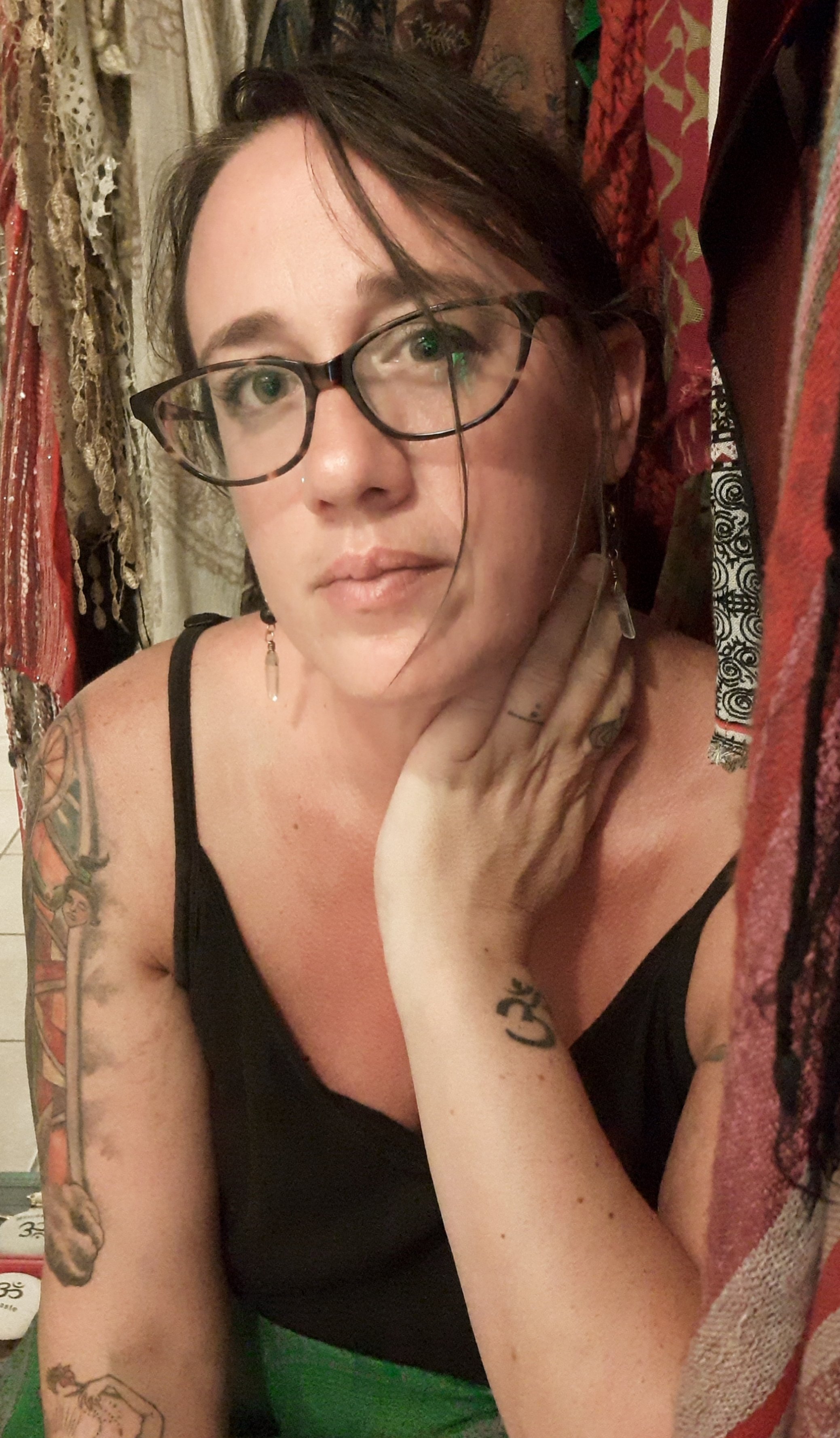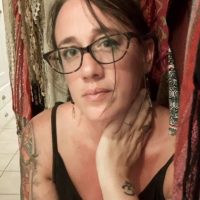“What the hell are you thinking trying to get sober in the middle of a pandemic?”
This was the most honest response I received when I began telling my circle of friends that I was going to take a break from drinking.
While crass, it was not inappropriate coming from a loyal drinking buddy who’s seen me through many alcohol-fueled train wrecks in the last few years.
Believe me, sobriety would have never been my first choice, but currently, it seems to be my only one.
I live in a small tourist town tucked back in the mountains of Northern Arizona. In 1903, this thriving mining town was named “The Wickedest Town in the West” by The New York Sun.
Not much has changed. When the last of the shops, galleries, and restaurants close up for the evening, it’s only the three bars in town that remain open well into the night. On the same streets where drunken miners used to fumble their way into bordellos, there is now an eccentric haven for a community of artists and freethinkers to which I have come to belong.
Tourists from around the world come up the mountain to our town for its unbelievable views, creative inspiration, and the midnight atmosphere. The “Town of Yes,” is elevated a mile high, and located just that little bit closer to God (Bacchus that is). It’s a town where anything is possible, and every desire is still being served up nightly.
Drinking is what we do. It’s common to go to the bar daily.
As a local, that’s where we network. You want to find the town plumber? Go to the bar. Want to hear the latest town scuttle? Go to happy hour. Can’t find your husband? Check the bar. Even if you go to the bars solo you are never alone. As a resident, the bartenders all know your name and your story, and they’re happy to pour you an after-work drink. Or in my case—five.
In the early winter, I was nine whiskeys deep on the tail end of a two-day bender when I was walking home and fell in the street. I broke the socket of my left eye and suffered a concussion. I had an oozing abrasion on my forehead, two black eyes, and the bridge of my nose was split open from where my glasses slammed into my face when I hit the curb. I was told by the emergency room doctor that I should not drink until my concussion was healed; approximately three weeks. Dammit.
During those few weeks that I was sober, I don’t recall anyone ever really suggesting that I may have a drinking problem or that maybe I should take a look at myself and where my choices were leading.
While I was embarrassed and ashamed by my actions and my injuries, more times than not, I heard, “I’m so glad you’re taking the time to heal. I can’t wait until you come out again. Text me—we’ll have a drink.” They didn’t say this because they didn’t care about my well-being, they said it because they already knew—and I already knew. I was in a horrifically abusive relationship with alcohol.
Those around me respected my right to make adult decisions. I would end this toxic dance with drugs and alcohol when I was ready, and until then, they would support that choice while also still talking to me in the morning, no matter what debauchery ensued the night before. Witnesses—not counselors.
I waited out those three weeks white-knuckled, swinging wildly between wanting to drink and drug myself into oblivion, and wanting to run away and start a new, sober life somewhere a million miles away.
I went through Christmas and New Year’s Eve sober, and then in January, on my 45th birthday, I stepped back into the bar and ordered myself a Manhattan on the rocks. Right back at it.
I didn’t need to stop drinking. I would never be held accountable unless I broke the loose moral code we all lived by, or the law, and quite frankly, both of those were arbitrary depending on who was involved.
So, while nothing like my falling down happened again in the months that followed, there were many other drunken incidents and embarrassments.
But it wasn’t until April, when the town shut down for COVID-19 quarantine, that things really started to fall apart. At that time, no one knew what was going to happen after the month-long stay-at-home order, and I had saved enough money to live for a while without a paycheck. So, why not consume all the booze, cigarettes, and drugs? With no responsibilities and no job to report to? Sign me up.
To say I went down the rabbit hole would be a gross understatement, but also a far too trippy of a tale to wind into this story. A lost month would be a fair description.
Then May came. The café I worked for remained closed and wasn’t considering reopening until mid-August. With nothing to do but sit and wait, day drinking became a way of life. For weeks, breakfast beers turned into sunset cocktails. The days all slid together in a sweet slurry of alcohol and the first pungent sweat of spring. And as the heat of the high desert summer began to rise steadily, so did my imbibing.
I once was able to explain away my drinking as the social and cultural norm here and it was completely accepted. But now, with all the bars closed and social gatherings forbidden, I still found myself drunk on a daily basis. It wasn’t the divorce, or the falling down, or the near-drowning that drew my attention to the fact that I needed to stop drinking.
No, it was living in quarantine, socially distanced, and alone with myself enough to really notice the magnitude of my alcohol abuse. I wasn’t socially drinking anymore. I wasn’t commiserating with my fellow service workers. I wasn’t even on a bar stool. I finally knew it was over when I found myself sitting in the only alley in town, sobbing, alone and drunk, at 5:30 p.m. on a Sunday.
There was nowhere to go and no one to rub my back and tell me it was all going to be alright. I had exhausted all my resources, along with my last bit of dignity. I stumbled my way home, snotty and defeated.
The next morning, I typed “how to get sober without AA” into a search engine. In this time of COVID-19, there are no in-person meetings, so I had to rely on the virtual world for guidance. What I found is that there’s a plethora of resources: podcasts, blogs, social media groups, and 12-step online yoga classes.
Nearly any path to getting sober in isolation is out there. It does take some time and it can feel a bit overwhelming sifting through it all to find what speaks to you, but it’s there.
Getting sober alone—getting sober in COVID-19 times—is possible. What worked for me was early morning walking, podcasts that made me laugh, and some that made me cry. I changed my daily spiritual practice of soothing a hangover to self-reflection.
That’s one place where this quarantine has helped me. No one was asking me to go to the bar or wondering why I was staying locked in my tower for days on end. I was able to focus all my energy on just me. How badly did I want to be sober? What was I willing to finally look at?
I read, I walked, I cried, I listened, I screamed, and when I could no longer take the chatter in my head that kept telling me that one drink would be fine, I danced unabashedly in my kitchen until I fell into my bed, sweaty and exhausted.
I am now 43 days sober. I know that this is only the beginning and that I have a lifetime ahead of me. But I’m doing it; one seltzer water at a time.
There is a quote from Mishka Shubaly’s book Cold Turkey that’s helped to lead me to where I am now. It reads, “What would you do if alcohol wasn’t holding you back?”
It’s this. Storytelling, Writing. Connecting through transformation.
So I’m getting busy doing it.
~









Read 58 comments and reply